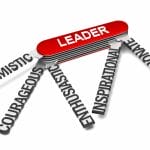Are Leaders Born or Made (p2)
Insights and commentary. Are leaders born or grown?
Are Leaders Born or Made?
The most dangerous leadership myth is that leaders are born—that there is a genetic factor to leadership. That’s nonsense; in fact, the opposite is true. Leaders are made rather than born. ”
Warren Bennis, American scholar, organizational consultant, and author
Are Leaders Born or Made?
We all know someone that seems to effortlessly inspire others through their influence. The person with the confidence to say what needs to be said and take responsibility. You may have wondered if you could ever become that person.
Leadership is commonly defined as, “the process by which a person influences others to accomplish objectives or a goal”. Do you believe anyone can achieve great leadership?
Although it may seem that some of us are born leaders, with perfectly natural abilities to inspire and direct, the truth is that leaders are not born; they are made. Leadership traits can be developed over time. Although some leaders may indeed have a natural advantage due to their experiences or upbringing, most everyone has the potential to be a leader.
Leadership theory & research
There are several theories on how leaders are formed. The Great Man Theory states that leaders are born, and that leadership comes naturally from certain skills in a person. Similarly, the Trait Theory of Leadership believes that having specific traits qualifies one to be a good leader. Other theories of leadership include Situational Theory, in which leaders are ideal in certain situations where their skills match the needs, and Behavioral Theory, in which a person’s environment forms them into a natural leader.
Are leaders born or made? Research has failed to definitively prove that leaders are born, not made. In fact, several surveys have found that most people believe leaders are made, not born, although many people do still believe leaders are born. Additionally, some studies have found a link between genes and leadership traits. Most likely, the answer lies somewhere in the middle where some genetic predisposition and lineage offer an advantage, but some development of leaderships traits is still required.
Regardless of whether leaders are born or made, companies and individuals continue to search for ways to build better leaders. In the U.S. alone, companies spend $14 billion a year on leadership training. This also helps answer the question, are leaders born or made -- and directionally supports that they can be made.
How to Develop Leadership Traits
Just as professional athletes have to continually train their muscles to maintain their strength, leadership skills must be continually worked on. But it does take just that - work, and hard work at that. Leadership coaching and mentorship can help accelerate these skills. Here are a few steps you can take to develop leadership skills now.
Become self-aware & humble
Leaders are aware of their strengths and weaknesses and the strengths and weaknesses of their team. They aren’t afraid to ask for help with their weaknesses by pulling in others with strengths. They are also humble enough to take advice and, in fact, invite feedback. Great leaders know they cannot get a full picture of themselves without others’ points of view.
Furthermore, they are not afraid to admit when they’ve made a mistake. They know that sharing mistakes is a learning experience for others. Maintaining the balance of humility and confidence is not easy, but it can be learned.
Another way to become self-aware is to take self-assessments which will help categorize your skills and point out what you are doing well and how to improve.
Have a vision
Leaders need to have a direction to steer their teams. Whether that is specific goals for the year or quarter or the development of individuals, set a clear vision and detail achievable goals to help you reach them. Great leaders have confidence in this vision and are able to help others see the importance of it and motivate them to work towards a common objective. Through leadership courses, you can learn how to establish a vision and convey it to others.
Furthermore, leaders accept responsibility for their vision and reassure their team by sharing responsibility for their successes and failures.
Communicate clearly
In order to motivate others to work towards objectives, leaders need to be able to communicate clearly. Anyone can work on developing communication skills and one of the best ways to improve is with practice. Good communicators will be able to better build trust, motivate teams, and open the path for two-way communication.
Good communication is not only the ability to talk to others but also the ability to invite feedback and listen. Since a key trait of leadership is listening, good communicators know when to stop talking and listen. There are numerous resources on developing communication skills, including books, online courses and classes.
Ability to adapt
The only constant in life and work is change, and leaders need to be comfortable navigating some ambiguity in change. Changes are chances to innovate and develop, but they can be uncomfortable and require looking at problems in a new light. Additionally, great leaders love growth, both of themselves and the people that follow them. They are constantly looking to learn, grow and innovate to become more effective at what they do.
To develop your ability to adapt, work on putting yourself outside of your comfort zone. Try changing things up, both in personal life and work. You could work for a startup where change is inevitable and fast-paced. Additionally, focus on growth by setting time aside for learning. Schedule learning opportunities in your week like viewing online courses, reading books, or listening to podcasts. You can even consider taking a leadership development course.
Stay strong under pressure
As just mentioned, leaders are flexible with change, but they also know when to stand their ground. Great leaders can maintain their position under pressure, never losing sight of their vision. Leaders will inevitably have to face difficult situations and will need to navigate them under pressure. You can learn how to stay calm under pressure and how to think clearly in stressful situations.
So, Are Leaders Born or Made? It Takes Work
Developing leadership skills takes hard work. But it can be done. Leaders are made through consistent practice. The best ways to develop leadership skills are leadership courses, mentoring and work experience. Check out related articles such as Are Leaders Born Or Made, Articles on Born Leadership, Born Leader Quotes.
The bottom line is that it takes focus, hard work, and an a curiousity of ongoing learning to continue to become a better leader. We do believe that the best leaders are always learning. So, are leaders born or made? The answer: the best leaders are self made.







